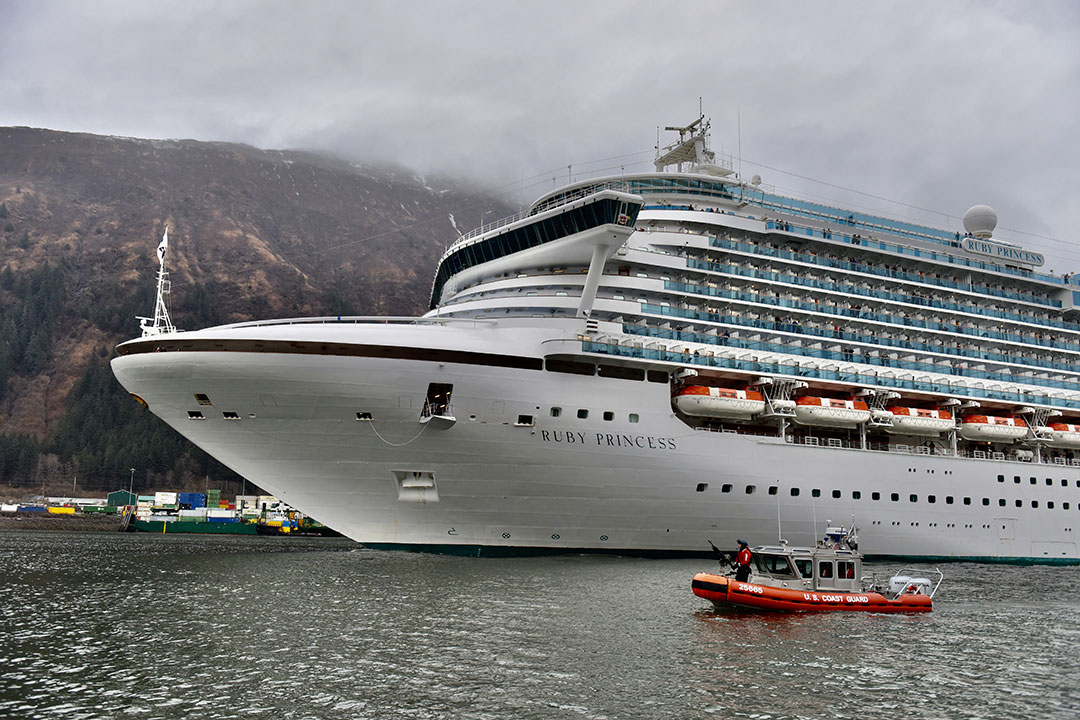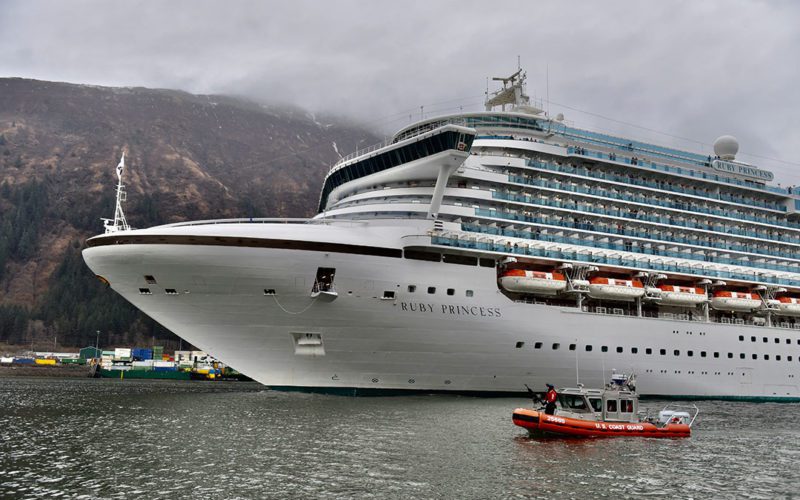
Princess Cruise Lines Ltd. must pay an additional $1 million fine after pleading guilty to a second probation violation stemming from its 2017 conviction for environmental crimes.
The company, a subsidiary of Carnival Cruise Line, failed to establish an independent internal investigative office as required under that 4-year-old agreement, the U.S. Dept. of Justice said.
“Just like individual defendants, corporate defendants must also comply with court orders. They are not above the law,” according to U.S. Attorney Juan Antonio Gonzalez for the Southern District of Florida. “The corporate defendant here ignored the court, choosing instead to thwart the compliance plan that was put in place to protect our environment.
“As this probation violation proceeding demonstrates,” he continued, “the government will not tolerate defendants’ blatant violation of court orders.”
The enforcement action against Princess stems from the company’s 2017 conviction for deliberately dumping oil-contaminated waste from one of its ships and then trying to cover up the crime. Princess pleaded guilty to felony charges and was fined $40 million — the largest-ever U.S. fine for intentional pollution from a commercial ship.
The plea agreement also required all Carnival Cruise subsidiaries with vessels calling on American ports to follow a supervised environmental compliance plan. That plan included audits by an independent auditor and monitor appointed by the court, the Justice Department said.
Princess pleaded guilty in 2019 to six probation violations, bringing another $20 million fine. Authorities said two violations stemmed from the company sending teams to prepare ships for their independent inspections.
Beginning with the first year of probation, there have been repeated findings that the company’s internal compliance program remained inadequate, the Justice Department said. In an October 2021 letter, U.S. District Court Judge Patricia A. Seitz concluded that the continuing failure “reflects … a culture that seeks to minimize or avoid information that is negative, uncomfortable, or threatening to the company.”
In the latest guilty plea, Princess and Carnival admitted to the failure to establish and maintain an independent investigative office. Princess admitted that internal investigators were hindered by management. The company also confirmed that management interfered with and delayed internal investigation activities.
Carnival’s latest plea agreement strengthens the internal investigation office and grants it more independence to carry out its duties. The office now reports directly to Carnival’s Board of Directors, and management will be forbidden from firing the leader of the internal investigation office, which is known as the Incident Analysis Group.
Further violations will be costly for the cruise operator. The Justice Department said fines will start at $100,000 a day and jump to $500,000 a day for any issue not rectified within 10 days.
“This case shows the importance of addressing issues of corporate culture and structure, and the root causes of environmental non-compliance,” Assistant Attorney General Todd Kim of the Justice Department’s Environment and Natural Resources Division said in a statement. “This was a serious and ongoing violation of probation that reflected Carnival’s failure to prioritize compliance with court orders.”
Carnival, in a statement, said it is “working in good faith through the course of probation.”
The company said it had already implemented many changes required under the court order, including changes to the internal investigation office, spokesman Roger Frizzell said.
“We will continue to honor our highest commitment to strive for excellence in compliance, environmental protection and the health, safety and well-being of our guests, the people in the communities … in which we operate and our shipboard and shoreside personnel,” Frizell continued.
Carnival Cruise Line of Doral, Fla., is one of the largest cruise operators in the world. It operates 24 ships that in normal years carry about 6 million people a year. Princess, meanwhile, operates 15 ships that carry about 2 million people a year.

